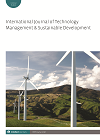
Full text loading...
 , Victor Dos Santos Paulino1
, Victor Dos Santos Paulino1
The outer space environment is in a critical circumstance. This can cause severe impact on humanity. The main issue is an increasing space debris population in Earth’s orbit. To ensure the long-term sustainability of outer space activities, the relevant stakeholders need to collaborate with each other to solve challenging issues and find meaningful solutions. This article aims to conduct a bibliometric analysis to provide information and insights to guide the alignment of all stakeholders towards space sustainability in the context of near-Earth outer space. The software VOSviewer is chosen to analyse the selected 205 journal articles from Scopus database during 2003–22. The results show the publication trends, the leading sources of publications and the country collaboration network. The discussion based on the selected articles can inform emerging theories that can underpin the development of the space sustainability concept. In conclusion, this analysis reveals the current scientific research and proposes meaningful theories for further research and recommendations.

Article metrics loading...

Full text loading...
References


Data & Media loading...

Publication Date:
https://doi.org/10.1386/tmsd_00079_1 Published content will be available immediately after check-out or when it is released in case of a pre-order. Please make sure to be logged in to see all available purchase options.